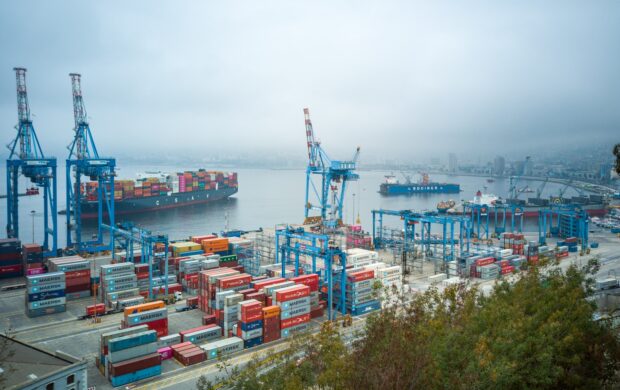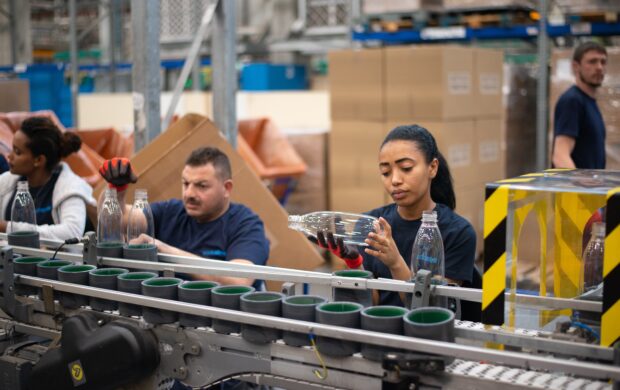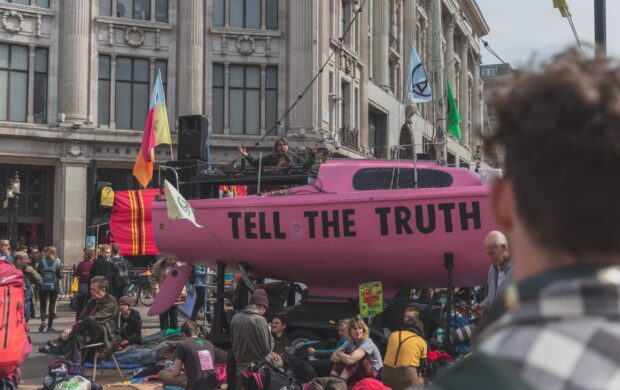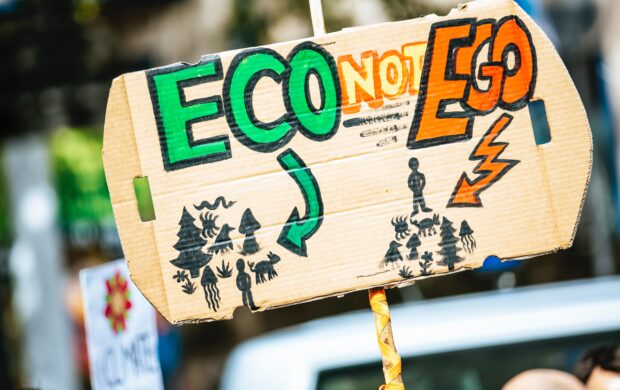
As business and sustainability leaders gear up for a critical edition of the New York Climate Week, Forum’s International Managing Director Hannah Pathak underlines the need to look beyond passive hope and find the courage to transform. Referencing Forum’s new Future of Sustainability report, Hannah highlights five key shifts that leaders must consider in order to unlock true transformation.
Next week, many of those for whom tackling climate change, and embedding sustainability and ESG are key aspects of their roles will be descending upon New York (or joining events online) for this year’s New York Climate Week. The event, which coincides with the UN General Assembly, has been running since 2009, and has since gained eminence as a key platform for driving action.
The high-profile speakers and mainstream representation at New York Climate Week, as well as growing participation by those who have frequently been marginalised from climate debates despite often being the ones most impacted by climate shocks, suggests huge momentum towards positive change. This year’s edition is particularly important as it follows the release of the first stocktake report by the United Nations Framework Convention on Climate Change (UNFCCC), which states that the world is off track to meet the climate goals outlined in the Paris Agreement. With so much turbulence around us, the atmosphere at such events can inspire hope – a much needed emotion in these times of polycrisis
However, momentum and hope are insufficient in the face of us most likely breaching 1.5 degrees of warming within this decade and the cascading risks that this generates. As one author notes, “left passive, hope is nothing more than disappointment deferred.” In addition to clear goals and action on net zero, we also need new ways of thinking and acting.
However, momentum and hope are insufficient in the face of us most likely breaching 1.5 degrees of warming within this decade and the cascading risks that this generates.
In the Future of Sustainability 2023 report “Courage to Transform” that we published in early September, we outlined four plausible trajectories that we see emerging and signal what could happen over the coming decades. All four of the trajectories – “Profit Supreme”, “Shallow Gestures”, “Tech Optimism” and “Courage to Transform” – can be identified in our here and now, with different trends pulling the world in different directions.
At Forum we strongly believe that only one trajectory – “Courage to Transform” – has the potential to create change at the scale and pace needed. Therefore, this is the trajectory we must orient towards. The “Courage to Transform” trajectory is underpinned by five key shifts in mindset and action, with a particular focus on the role of the private sector in creating positive change.
At Forum we strongly believe that only one trajectory – “Courage to Transform” – has the potential to create change at the scale and pace needed. Therefore, this is the trajectory we must orient towards.
So, for those working to tackle climate change or convening in New York, amidst the busy schedules of events, networking, learning, and contributing to the dialogue, consider what these five shifts could look like in your work and in your organisation:
- From a risk prevention mindset to a transformative one, which involves seeing opportunity, not risk, in change, while investing in both climate adaptation and mitigation measures.
- From addressing the symptoms of our social and environmental crises to tackling their root causes. This necessitates moving beyond incremental ‘solutions’ (that are likely to fail) to recognise the underlying causes of challenges and the potential unintended consequences of your interventions.
- From passively responding to their operating context to actively shaping it. From influencing policy to better-engaging stakeholders and customers, businesses must increase their agency to drive change.
- From slow centralised decision-making to more agile distributed governance models. Instead of consolidating power, businesses must distribute responsibilities and value creation across multiple levels and stakeholder groups.
- From failing to acknowledge the influence of individual, organisational, and contextual bias to identifying and removing this bias in risk assessment. Businesses making this shift will see more equitable and balanced decision-making longer-term.
For the Forum team, we will be focusing on two projects of work in particular at New York Climate Week that seek to inculcate these shifts: the Climate and Health Coalition, and American Climate Futures.
The Climate and Health Coalition explores the intersection between climate and health and the role of the private sector. The dual challenges of a warming climate and its health impacts are deeply connected. The drivers of climate change are drivers of poor health (such as air pollution, or loss of nature and biodiversity) but equally the actions taken to mitigate and adapt also have the potential to benefit health.
The private sector thus has an important role to play here in terms of designing products and services that shape health and health equality, as well as tackling climate impacts in their operations and supply chains. At Climate Week we will be sharing case studies from the private sector: inspiring but grounded stories of how and where businesses are working at the climate and health intersection. We will then be integrating these into a toolkit to be launched at COP28. The toolkit will provide detailed, supported guidance on the steps that the private sector (with an initial focus on the healthcare sector) can take on climate and health.
American Climate Futures is a national program aiming to ensure the needs and voices of those most impacted by climate change in the US are at the forefront of future climate-related solutions, goal-setting, planning, and development — while also challenging the systemic inequalities that got us here in the first place.
With partners, we are co-developing practical guidance for the private sector to accelerate action on climate justice, uncovering opportunities for a multi-sectoral and collaborative approach. There are two key focus areas: clear guidance for private sector action on climate justice, and just decision-making and governance processes developed through a community-centred process. Underpinning all of the work is a commitment to storytelling and amplifying historically excluded voices.
In this environment of turbulence and uncertainty, it is now more important than ever for us to collectively find and harness the courage to transform.
Explore all this and more in Forum for the Future’s new report, ‘The Future of Sustainability: Courage to Transform’.
Explore the future with us
There is no data about the future and prediction is an impossible game. But we can shape the future, and the best way to start is by imagining the future we want.
For years, Forum has used futures thinking to help organisations grapple with uncertainty and change – and by doing so, understand where to focus to have impact.
Find out more about using applied futures to transform your organisation.






















Join discussion